We've been neutral on Beeper so far, but an interview with the company's CEO clearly demonstrates that the company is wasting users' time and possibly causing security issues as it keeps running into Apple's wall by hacking iMessage, just for the sake of blue chat bubbles.
If you can't afford an iPhone, then you can't afford an iPhone and it's as simple as that. You probably can, though, as there's one for nearly every price range — just maybe not a 2023 model year one.
Or if you use Android because you prefer it, that's fine, and it's your choice. There are some excellent devices by an array of manufacturers, and we're sure you'll be happy with them.
But, no one owes you blue bubbles when you send a text message to an iPhone group chat.
You can live without blue text bubbles
There are studies that convincingly scream that this blue or green bubble issue is an issue. Teenagers in particular are feeling under pressure to conform and so buy iPhones.
And you would think that this blue bubble envy is a massive deal, if you only read those reports and only considered America. Not only does nowhere else care, everywhere else users don't remember whether Apple's messages bubbles are blue or green.
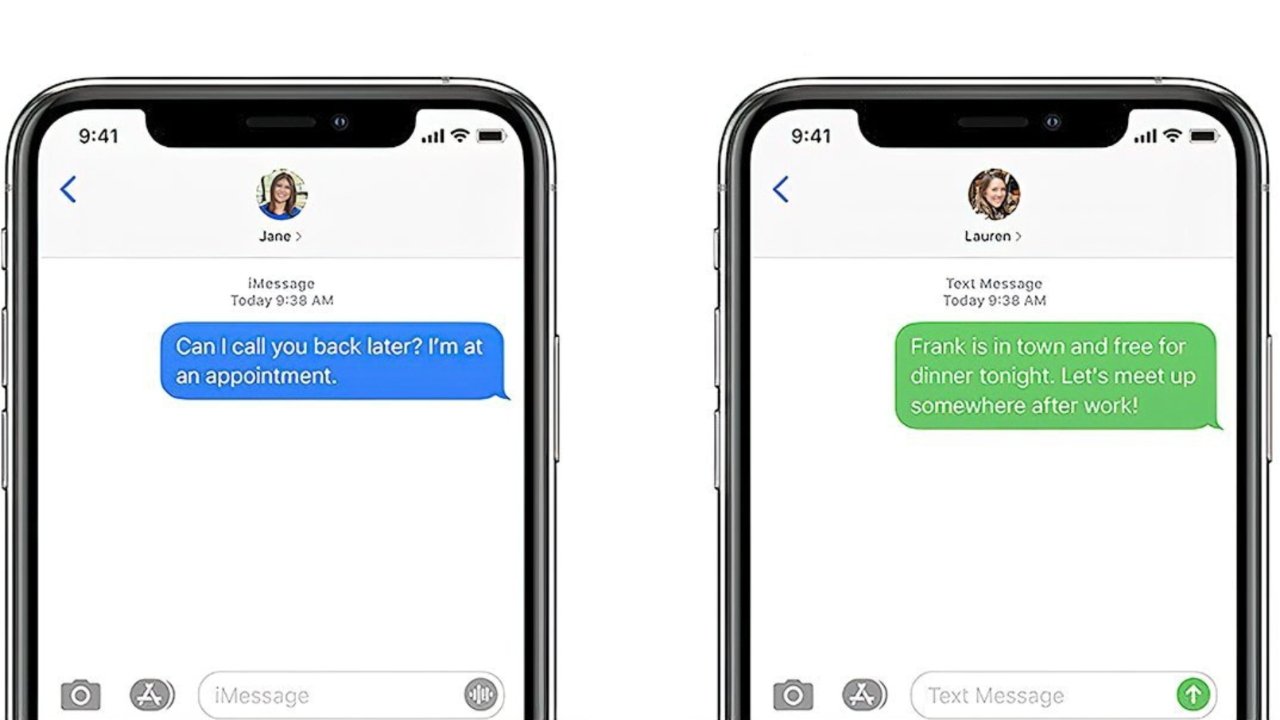 Trust us, outside the US, so many people can't tell you whether Apple's iMessage uses blue or green.
Trust us, outside the US, so many people can't tell you whether Apple's iMessage uses blue or green.Beeper knows, and it knows that it can sucker folks out of $2 a month, yet its CEO Eric Migicovsky is trying to make it a point of pride that Apple must be stopped, or iMessage should be universal, or something.
He's now tried to position his firm as somehow standing up for the rights of Android users — and that's where AppleInsider parts company with him. As an interesting technical exercise, fine, or as a slightly worrying security issue, okay, but blue bubbles are not where democracy stands or falls.
Plus Migicovsky's stated reasoning is simply childish.
"Apple has monopoly powers [as] the largest phone maker in the US," he told The Information. "More than 50% of the U.S. uses an iPhone."
There is a decent argument to be made about the cost of the newest model year iPhones making them out of the reach of half of the US population, but that's not Migicovsky's position. His position is this one of universal access, which he has attempted to back up with what can only charitably be called justification, if you squint.
"iMessage is the default [messaging] app on that device," he continued. "You can't even change the default."
If it weren't equally as flawed, this would be pure whataboutism. That's the debate technique where you know you cannot win on the real point, so you move the argument over to an topic you stand a better chance with.
So Migicovsky is really saying something like "Apple owns iMessage, sure, but what about the fact it won't let you replace it as the default?"
Whataboutism is a logical fallacy, but is still shockingly successful as a debate technique in the court of public opinion. It's up there with trying to prove a negative.
Regardless, let us indulge Migicovsky for one moment and allow moving the debate over to iMessage being the default message app. Because it's both true and totally irrelevant to the topic at hand.
The true part is that, quite right, iMessage comes on all iPhones and is a stock Apple app just as Safari and Mail are. And it's also true that Apple lets you set alternatives to Safari and Mail as your default browser and email app, where they don't offer any alternative to iMessage.
Only, this is an issue with browsers and email, where it isn't with messages.
With a browser, any time you get a link in an email — or a message — and you tap on it, the default browser opens. If a website includes an email link, tapping it opens the default email client.
Apple's Messages doesn't do this, though. If you get a message in WhatsApp, tapping on the notification won't take you to Messages, it will take you to WhatsApp.
That's important, so we're going to say it again: if you want to send a message, you open your message app of choice and you send it. Then when you get a reply, you tap the notification and you're taken back to that same app.
It's so clearly different from enforcing a stock app like a browser, that most of the entire world has done it. Outside of the US, WhatsApp is vastly, practically overwhelmingly more popular than Messages.
So Migicovsky's whataboutism argument is as entirely unjustifiable as his one that Apple is failing in its duty to give away its products to people who don't want to buy them.
Define secure
There is one last issue that Migicovsky particularly takes umbrage at. Apple says it is blocking his company because it is using fake credentials to access iMessage and is therefore a security risk.
"I think of [that is] '1984' doublespeak," he said. "Beeper Mini makes iPhone customers' communication more secure."
On a point of technicality, it is possible to argue that Beeper Mini makes sending messages from iMessage to Android more secure. That's because at present, such an iMessage gets sent as a regular, old-style SMS text message.
Beeper Mini does not make iMessage to iMessage even fractionally more secure, and since it is indeed faking credentials to get on the iMessage network, it is possibly a security issue, as Apple says it is.
Apple is concerned with its own iMessage network, it has no reason to care what Android does, or what old-style text messages can or can't do.
Security and privacy concerns aside, too, Apple has another reason to block Beeper. At present, Beeper Mini is trying to get people to borrow a Mac in order to register on Apple's servers as a legitimate iMessage user.
Apple pays for iMessage servers, it just doesn't pass on the cost to customers. It's not a small amount, as we're certain that the hourly count of iMessages is in the millions.
Beeper is not paying for that, and before it hit Apple's wall for the first time, it was charging users for the privilege of using Apple's servers.
The best whataboutism Beeper could manage there would be "yes, we're costing Apple money, but what about the billions in dollars it makes every year?"
You can't expect another firm to effectively fund your operation for free without their permission. Beeper's CEO chooses not to mention that and instead focuses on his spurious security arguments.
Follow the money
If this were really all about security or interoperability, Beeper would have packed everything in the moment Apple announced it would support RCS in 2024.
Instead, it's about money. Like it always is.
Migicovsky claims that Beeper went from zero to a million dollars "in annualized run rate" in the first 48 hours after its launch, given that it was charging. It's not presently charging customers, but we presume that if he gets this worked out to a point where Apple can't stomp it, they'll go back to the iMessage-as-a-service charge.
At present, it looks like Migicovsky is also betting that people are willing to spend time every week or every month redoing the Mac hack that lets this work.
No one has to have an iPhone and they can be expensive. But if you're not able or willing to buy one, just try to get through life without iMessage, as our non-US staff manage to do just fine.
There's something to be said about iPhone users being jerks about it. We've seen group chats get weird about it, and there can be issues with images or media. That's an entirely separate issue, and we hope that AppleInsider readers are better about it than the folks that don't come by here.
Don't pay money to Beeper, don't be constantly re-applying its hack, and don't buy a Mac in order to do it. And certainly don't use one of Beeper's or borrow a friend's to use their hack.
Macs and iPhones are very good, iMessage is excellent. But if you must go out on a financial limb to get a blue bubble, buy an iPhone and be done with it.
After all, carriers often will sell you an iPhone that's a year or two old for about seven bucks a month, and, presumably, you already have cellular service you can port over. This is not much more than Beeper wants to charge.
 William Gallagher
William Gallagher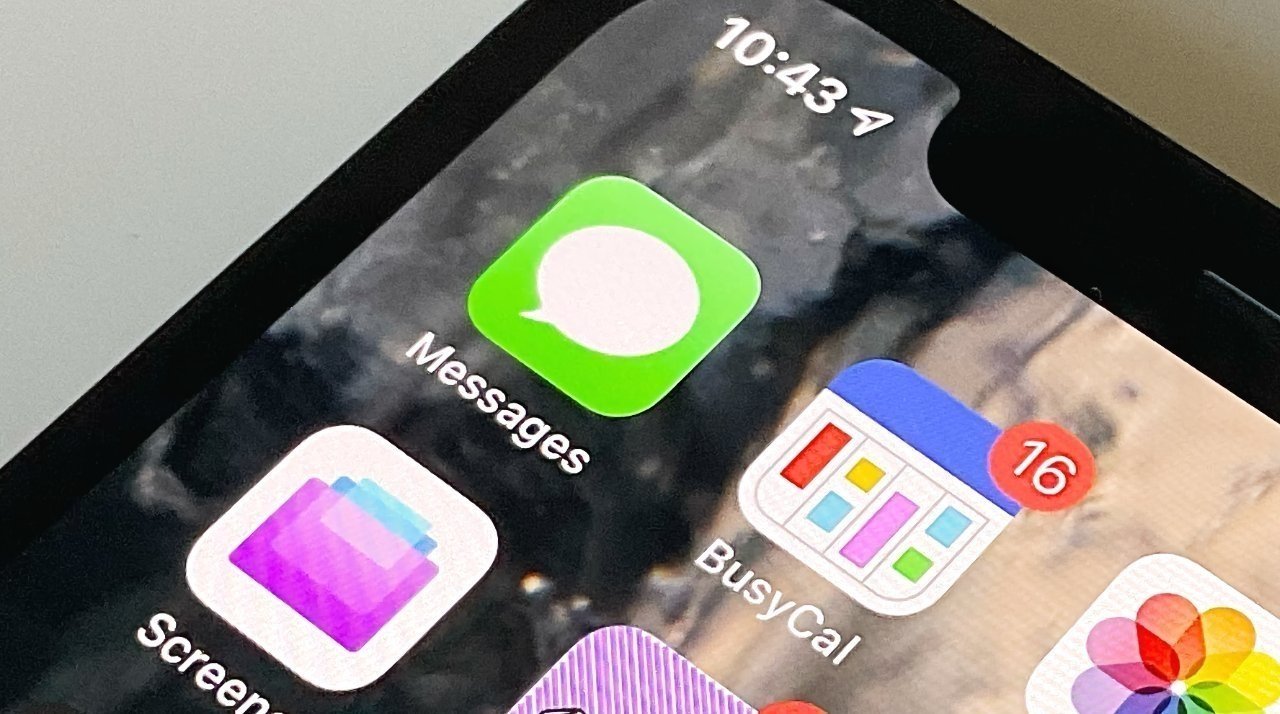
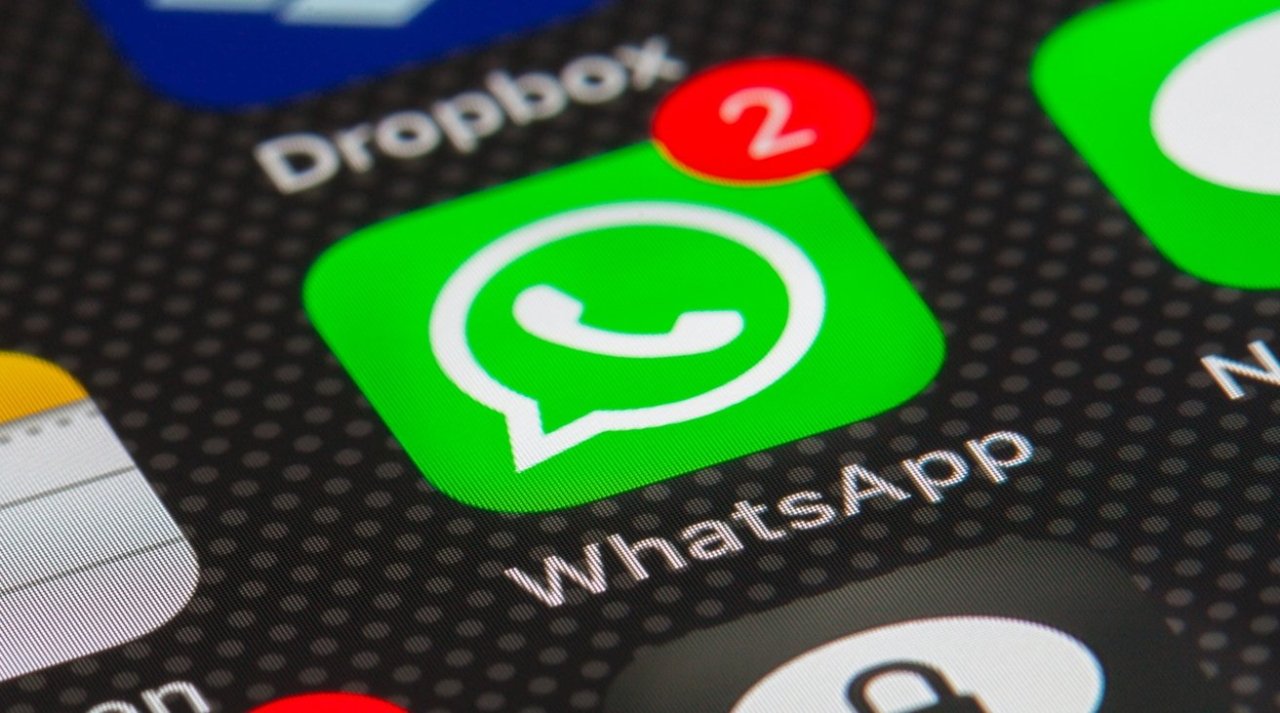
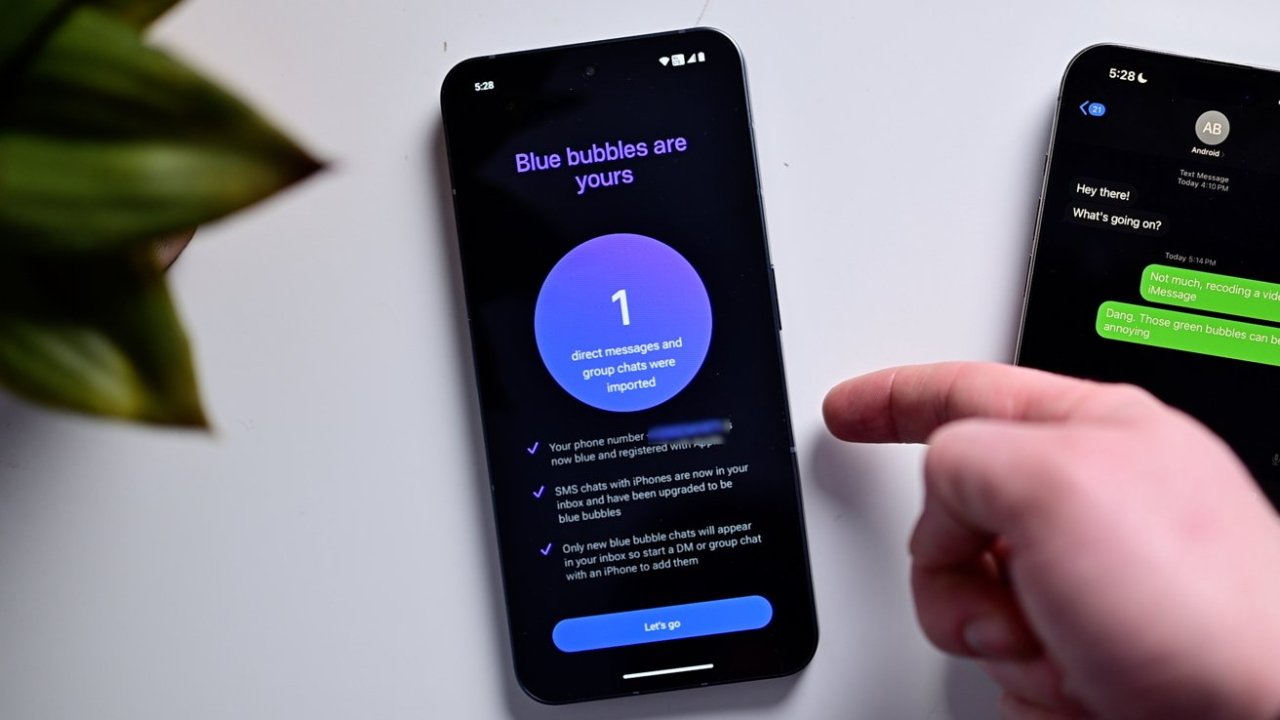

-m.jpg)






 Mike Wuerthele and Malcolm Owen
Mike Wuerthele and Malcolm Owen
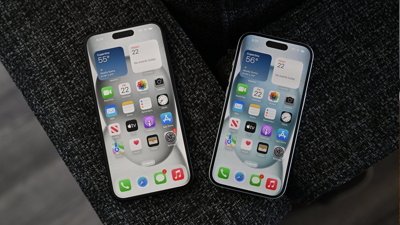
 Malcolm Owen
Malcolm Owen

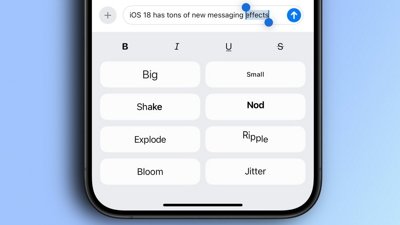
 Oliver Haslam
Oliver Haslam
 Amber Neely
Amber Neely

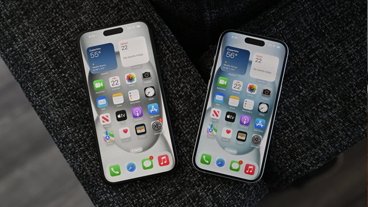








59 Comments
I have an iPhone. How does that help me if the people I want to communicate with don’t?
This is a very well-reasoned article. Props to the author!
While he acknowledges possible security and privacy issues with Apple Messaging due to the lack of E2EE outside of communicating only with folks also using iDevices, he also rightly points out that Beeper Mini does not fix that, perhaps worsens it, and Apple absolutely does not owe that company any space on its servers. Plus, as he says, outside of the US very few people care anyway, with other messaging services being more popular on iPhone than Apple's own.
That's a fair take all-around.
The point that Messages is the default and can't be changed is a valid argument for being anticompetitive in the iOS messaging ecosystem because it's makes it such that you can't fully switch to a different messaging app. A different messaging app that can process SMS/MMS should be able to be the one stop shop for such data but Apple forcing users to use Messages which does nothing to make the SMS/MMS experience better. Even though SMS/MMS is an outdated technology, other apps could provide better user experiences. For example, in Google Messages on Android, emoji reactions on SMS are intercepted and displayed in a more friendly way. Another example would that another SMS/MMS app would inform the user to send a video via link instead of MMS to preserve quality.